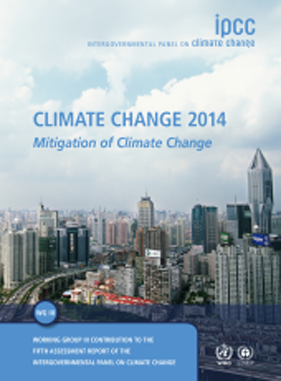Climate change more threatening than ever – renewable revolution required

And it’s Earth Day next week!
Global greenhouse emissions are rocketing. Massive emissions cuts are required to avoid dangerous impacts of climate change. And despite decades of talk, world governments have made paltry efforts to address the problem.
That’s the grim picture painted by a major report on mitigating greenhouse gas emissions released today by the Intergovernmental Panel on Climate Change (IPCC).
"There is a clear message from science: To avoid dangerous interference with the climate system, we need to move away from business as usual," said Ottmar Edenhofer, an energy expert at the Potsdam Institute for Climate Impact Research in Germany, who was a co-chair of the roughly 500-page repor.
The report also describes the daunting work required to sidestep climate dangers, says energy expert Ken Caldeira of the Carnegie Institution for Science in Stanford, California. "To greatly reduce emissions, we must revolutionize our systems of energy production and consumption," he says. And that’s a "long, hard, and costly undertaking."
Several years in the making, the document is the third part of a three-part "assessment" of scientific literature since 2007, when IPCC last published its last round of voluminous assessment reports. IPCC released the first part, on climate science, in September 2013; the second report, on impacts of climate change, came out last month.
Ironically, economists are compared the task of lowering the world economy’s carbon footprint—now the equivalent of about 50 billion tons of carbon dioxide per year – to turning a cruise ship.
But the report says the ship is firing full steam ahead. the result was an equivalent of 7 billion more tons of emissions in that decade than during the previous one.
Zero carbon power in the form of renewables is a central part of the equation, the report says. It identifies four key technologies for achieving aggressive emissions reductions goals: nuclear power, energy efficiency, biofuels, and biomass energy with carbon capture and storage, known as BECCS.
Activists have sought to spin aspects of the report that suggest a glimmer of hope for a healthier atmosphere. "It is not too late to limit warming to less than 2°C – or even 1.5°C with less certainty – the levels beyond which risks start to accelerate substantially. But we have to stay within a limited carbon budget that is shrinking fast," said Greenpeace in a prepared statement.
And… it’s Earth Day next week 22 April little chance to celebrate – yet http://www.earthday.org/
Valere Tjolle
FULL SET OF SUSTAINABLE TOURISM REPORTS: SPECIAL OFFER HERE SPECIAL WEB OFFERS HERE
 United Kingdom
United Kingdom United States
United States Asia Pacific
Asia Pacific












































Dozens fall ill in P&O Cruises ship outbreak
Turkish Airlines flight in emergency landing after pilot dies
Boy falls to death on cruise ship
Unexpected wave rocks cruise ship
Woman dies after going overboard in English Channel